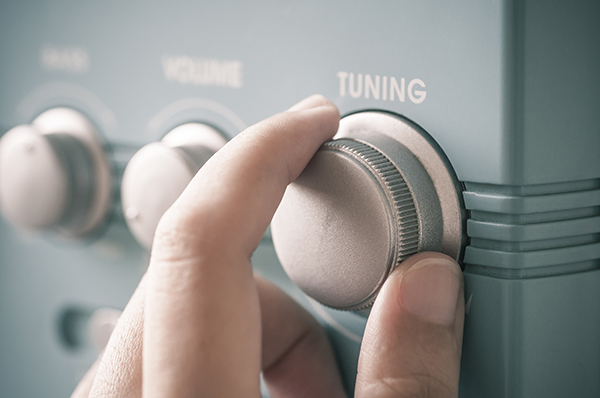Radio spots, audio guides, advertising recordings
Apply for a licence
You want to use music for your radio or audio advertising
Who/what does Tariff PN apply to?
Tariff PN applies to music reproduced on sound recordings that are not intended for the public. It applies for example to the producers of radio spots and audio guides or of sound recordings used for background music.
Who is responsible for declaring a music recording or radio spot?
The producer or the principal. The principal is the person or company that finances the production of the recording and has the right of disposal over the sound recording or the radio spot.
Declare on time
If the radio spot uses production music (see below) or commissioned music, the spot can be declared up to 10 days after it is produced. In all other cases, it must be declared at least 10 days before it is produced. To declare the sound recording, please use the PN questionnaire.
Applying for rights of use
If you use music in combination with pictures, films, or advertising, you have to obtain a licence (synchronisation right) from the rightholders of the musical work (authors) and the recording (artists, producer/label). This may involve additional costs which have to be negotiated directly with the rightholders.
NB: Pressing licence subject to reserves!
SUISA issues the pressing licence subject to the production, performance and synchronisation rights. These must be obtained directly.
Advantages of production music / mood music
The advantage of production music is that the user can obtain the licence to use the music directly from SUISA. They do not have to apply individually to the various right-holders (authors, publishers or labels).
SUISA number: Communication to the radio station
Each radio spot is assigned a SUISA number. The number is indicated on the invoice and must be communicated to the radio station when booking the radio spot. Based on the list of numbers provided by the radio broadcaster, SUISA can distribute the royalties for broadcasting rights to the beneficiaries.
Radio spot broadcast
If known, send us the name of the broadcaster and the number of broadcasts. This will simplify the proper distribution of royalties to the authors.
Commissioned music
If you commission the music for your radio spot from a composer who belongs to a copyright society, you cannot settle the reproduction rights directly with the composer. The rights must always be settled with SUISA.


